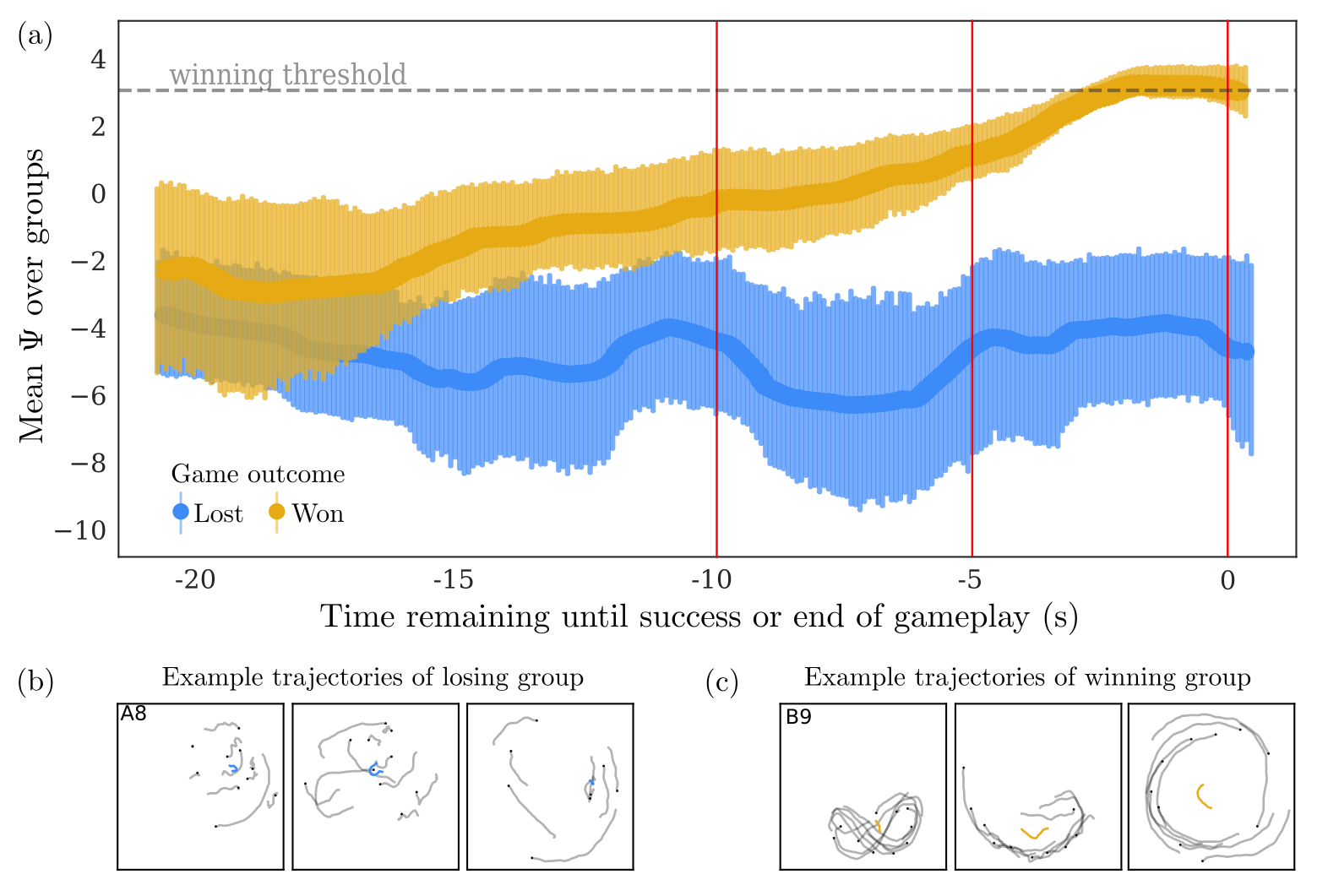Synch.Live: Collective problem-solving through flocking motion induces higher connectedness to others
Madalina I. Sas, Pedro Mediano, Fernando Rosas, Hillary Leone, Andrei Sas, Christopher Lockwood, Henrik J. Jensen and Daniel Bor
DOWNLOAD psyarxiv/e8j39 10.31234/osf.io/e8j39Abstract. Collective self-organising behaviour is ubiquitous in nature, whereby complex patterns emerge from the local interactions between individuals. Yet in humans, most group behaviour is often attributed to explicit central control or social norms, rather than to synergistic interplay between individuals. Here we introduce Synch.Live, a participatory behavioural science experiment for quantitatively studying collective motion in humans, framed as a game with an unspecified task and agroup feedback mechanism, that can be solved through cooperation by 10 participants moving together. More than half of the groups participating in the experiment succeeded in achieving flocking motion, and winning players showed higher connectedness to others compared to those who failed. Furthermore, individuals with an awareness of working strategies were more likely to be part of winning groups, suggesting the importance of individual contributions to the collective task. This work demonstrates that solving an unspecified group challenge in response to group feedback is possible, and moreover, that flock-like collective movement has the potential to yield social benefits and well-being, suggesting new directions for exploring social aspects of consciousness and cognition.
